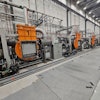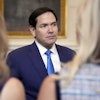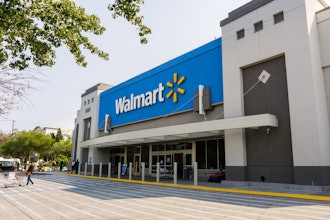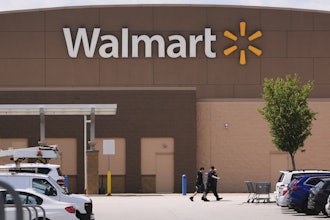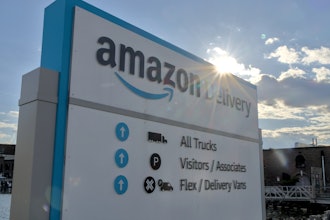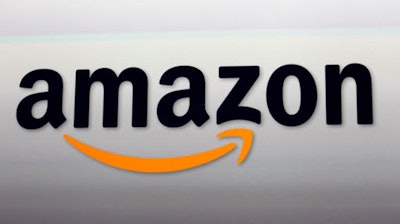
ALBANY, N.Y. (AP) — Amazon stands to get more than $1.5 billion in grants and tax breaks from New York state in exchange for bringing at least 25,000 workers to a new campus in Queens, a record-setting incentive package that was both cheered and jeered Tuesday by elected officials in the city.
At a celebratory news conference, Gov. Andrew Cuomo acknowledged that the economic development plan offered to Amazon to move to Long Island City was the richest in state history.
The company would get city and state help settling into a site along a boat basin on the East River, now occupied by a gritty mix of private industrial buildings, parking lots and city-owned properties. Amazon would invest $2.5 billion of its own money to create the campus, and if it hits its hiring and building targets, the company would get $1.2 billion in tax credits over 10 years plus a cash grant of $325 million.
New York's incentives were nearly triple those offered by Virginia, which also landed 25,000 Amazon jobs in the Washington suburbs.
But Cuomo, a Democrat, insisted it would pay off with $27.5 billion in new tax revenue. He said that amounted to a $9 return for every dollar of public funds spent.
"This is a big moneymaker for us," he said. "It costs us nothing — nada, niente, goose egg. We make money doing this."
The plan was immediately assailed by others as a corporate giveaway.
Alexandria Ocasio-Cortez, a Democrat newly elected to Congress from Queens, said on Twitter that her constituents were outraged that the company would be getting so much public support "at a time when our subway is crumbling."
"We need to focus on good healthcare, living wages, affordable rent. Corporations that offer none of those things should be met w/ skepticism," she wrote.
City Council Speaker Corey Johnson said he was skeptical of the plan and couldn't understand why a company as rich as Amazon would need any public support. State Sen. Michael Gianaris and City Councilman Jimmy Van Bramer, Democrats who represent the Long Island City area, also condemned the deal.
"We are witness to a cynical game in which Amazon duped New York into offering unprecedented amounts of tax dollars to one of the wealthiest companies on Earth for a promise of jobs that would represent less than 3 percent of the jobs typically created in our city over a 10-year period," they said in a joint statement.
More powerful city Democrats, though, lined up in support of the project, which represented a rare moment of close cooperation between Cuomo and Mayor Bill de Blasio, a fellow Democrat but frequent political rival.
De Blasio, who campaigned for office on a promise to give more thought to regular New Yorkers than big corporations, called the deal "an extraordinary day for Queens."
The opportunity to create 25,000 mostly well-paying jobs outside well-off Manhattan, he said, trumped concerns about whether the project would overburden the neighborhood's subways, schools or sewers. He promised it would benefit even residents of a nearby public housing development, one of the nation's largest.
Part of the dell involved setting aside part of expected new tax revenue for projects that would benefit all of Long Island City and western Queens, not just the area being taken over by Amazon, he said.
New York's inventive package would give Amazon roughly $48,000 in benefits for every job it created in the state, compared to $22,000 for Virginia and $13,000 for Tennessee.
Amazon vice president for real estate John Schoettler said the company, which already has a large presence in New York City, planned to start hiring next year.
Securing part of Amazon's second headquarters represents Cuomo's biggest economic development project, topping his "Buffalo Billion" initiative in western New York.
Some of his other initiatives haven't panned out as hoped. The construction a Tesla solar panel manufacturing plant hasn't created the number of jobs Cuomo expected. His top economic development adviser was convicted of corruption charges linked to the project.
"It certainly appears New York is being overwhelmingly generous," said David Friedfel, director of state studies for the Citizens Budget Commission, a nonpartisan state government watchdog group. "And we have a history of providing economic development benefits that don't pan out."


